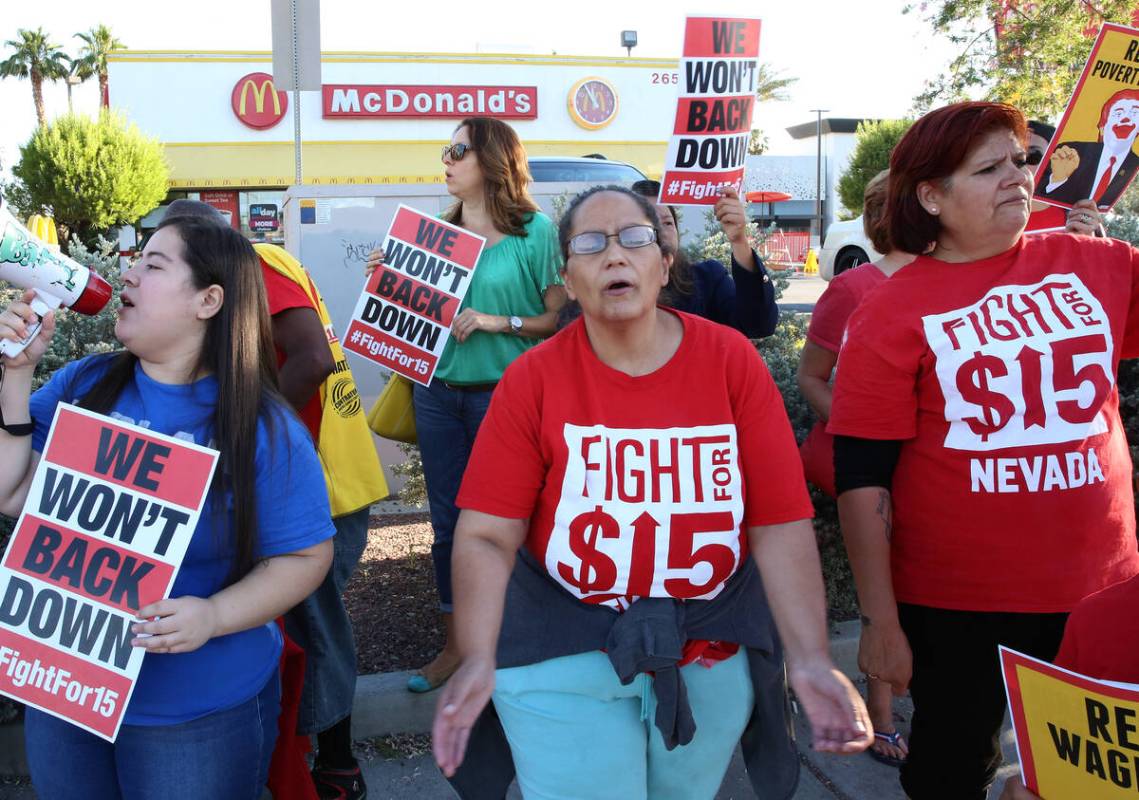EDITORIAL: California wage law is good news for the robots

Southern Nevadans who make the trek along Interstate 15 to the Los Angeles area may have noticed that a quick lunch stop in Baker or Barstow can now run close to $20. Pretty soon they might also be surprised to see machines doing work that actual people used to do.
In April, California imposed a $20-an-hour minimum wage on fast-food companies, a 25 percent hike. The results were swift and predictable. Within weeks, the Los Angeles Times reports, prices at McDonald’s, Jack in the Box, Chipotle, Starbucks and other fast-food chains increased by “a mid- to high-single-digit percentage,” one survey found.
Some operators have laid off employees — particularly delivery drivers. Other companies, the Times reports, have avoided layoffs by closing earlier, opening later and limiting employee hours. But the job losses are coming. Companies have also ramped up plans to automate and to use artificial intelligence thanks to the new wage floor.
“To hold the line on further price increases,” the paper reported, “a growing number of fast-food operators are now racing to install as much automation as they can afford.”
The owner of six El Pollo Loco stores in Southern California told the Times that she had resisted self-service kiosks because “we just didn’t want to force our customers to use technology. We thought the personal contact was important.” But the massive increase in labor costs forced her to reconsider.
Harshraj Ghai, whose family owns 180 fast-food restaurants throughout the state, said he has moved up his plans by several years to bring self-service kiosks to his stores. He’s also looking at installing AI systems to handle the operations of the drive-thru windows. The economics of such moves pencil out now with the massive increase in personnel costs — one owner said the kiosk systems would pay for themselves within a year thanks to the concurrent savings in wages.
“Our goal isn’t to get rid of people,” Mr. Ghai told the Times. “We’re in the people business at the end of the day.” But because the wage mandate has forced more fast-food operators to embrace automation, in the long run, “we’ll have fewer people.”
That’s not good news for the low-skilled workers who depend on such jobs, the retirees looking for a little extra income or the teenagers hoping to gain work experience. But it’s the reality on the ground in California, where government central planners believe they can manipulate the marketplace with no ill effects.
The Democrats who dominate the Nevada Legislature should take notice. Following California on the minimum wage is a recipe for killing jobs.